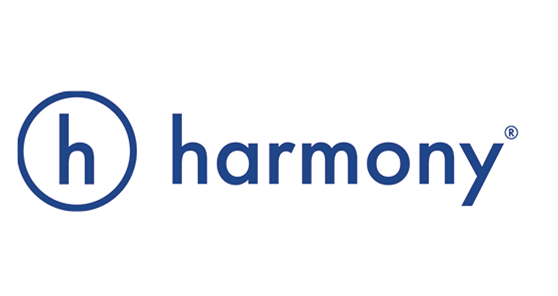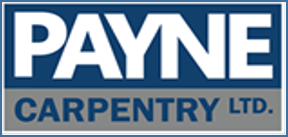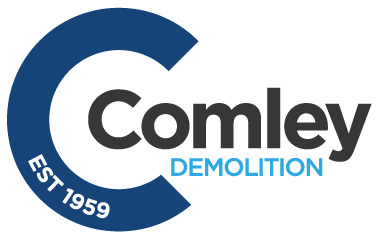Title Page
-
What is the project name?
-
What is the job number
-
Location
-
What is the inspection date
-
Prepared by
Administrative controls
-
Site sign in sheet is available and in use? (used for emergency roll call)
-
Construction Phase Plan / Safety Plan is available, communicated and applied on site?
-
F10 notification is displayed or marked not applicable to this site?
-
Latest insurance certificate is available and displayed?
-
Latest health and safety policy is available and displayed?
-
Health and Safety Law poster/ pocket card / leaflet or guide is available for employee review?
-
All employees and sub-contractors have been inducted?
-
Induction records are complete and thorough?
-
induction registers are complete and thorough?
-
Employee competency records have been collected and reviewed to ensure they are aligned to scope of work
Safety Signage and Information boards
-
Site Safety Information board on site and displayed?
-
Site Safety Information board is up to date and complete?
-
Men working signs available and in use?
-
Site Specific Hazard signage available and in use?
Risk management
-
DSTI (Daily safe Task Inspetion) has been performed?
-
DSTI (Daily Safe Task Inspection) is complete and thorough considers all site hazards and risksDSTI?
-
All activities currently being performed on site have a valid Risk Assessments and Method statements?
-
Employees and sub-contractors have been briefed on Risk Assessments and Method statements?
-
Briefings records are complete and all fields completed in full?
Noise
-
Noise generated by activities and tooling have been assessed and recorded?
-
Noise suppression / noise protection zones have been implemented or considered.
-
Hearing protection has been defined as needed for the site team, and hearing protection provides the required level of protection SNR (Single Number Rating) rating.
Manual Handling
-
Employees and sub-contractors are trained in manual handling?
-
loads have been risk assessed to reduce harm from lifting, pulling, pushing or movement of equipment or materials including use of lifting aids, suitable trolleys or team lifts where necessary?
-
Manual Handling Assessments are available and in use?
Hand arm vibration
-
Use of any vibrating equipment has been risk assessed and is managed.
-
Vibration magnitude of tools are recorded?
-
Operator exposure limits are set and employees are aware of trigger limits?
PPE (Personal Protecive Equipment)
-
Do all employees have the required PPE (Personal Protective Equipment) as per RAMS (Risk Assessment and Method Statements and COSHH (Control of Substances Hazardous to Health) Assessments and is it in use?
-
Are PPE registers complete, does it evidence PPE issued to employees and subcontractors?
Housekeeping
-
Is site clean and tidy , waste managed, tools and materials suitable stacked and tidy?
-
Floor protection is in place and dust and dirt is contained, or cleaned soon after activities are complete?
-
Is there clear access to all work areas. are trip hazards managed. Are pedestrians and residents considered?
-
Are waste trolleys regularly emptied to ensure waste does not excessively accumulate
-
Are waste skips effectively utilised, are other waste items suitably stored and access controlled?
Asbestos Management
-
Has the project been surveyed for asbestos?
-
Has any Asbestos or ACM (Asbestos containing Materials) been identified in the survey or register?
-
Has the Survey / Register been effectively reviewed by the project team?
-
Have all employees and sub-contractors received asbestos awareness training?
-
Has the Survey / Register been briefed to all employees and sub-contractors to ensure awareness of content and control?
-
Has the Asbestos control process been followed after review of the Survey / register?
Electrical Safety
-
Are all tools and equipment used on site 110V or Battery Operated?
-
Are tools, equipment, leads in good condition and traceable to portable electrical register?
-
Are all portable electrical tools, chargers and electrical leads onsite PAT (Portable Appliance Testing) tested and tagged?
-
Are leads organised on lead stands or similar, not creating trip hazards, running through water, or placed on metal/steel structures?
-
Do all cabins, welfare units or similar have electrical installation condition reports or proof of inspection and testing?
Work on electrical systems
-
Electrical permit process understood and implemented on site?
-
Electrical systems are isolated and checked for dead prior to work commencing using an electrical lockout permit.
Plant and Machinery
-
Is mobile plant or machinery onsite
-
Is a checklist completed and detailed?
-
Has operator competency been validated?
-
Are barriers or similar controls in place to manage access to plant and machinery to avoid injury?
COSHH (Control of Substances Hazardous to Health)
-
COSHH is suitably store? flammable and non-flammable seperated and in a ventilated area?
-
COSHH Assessments are available for all products on site?
-
COSHH Assessments have been briefed to employees?
-
COSHH waste is controlled and disposal arrangements in place?
Lighting
-
Rough work not requiring perception of detail: Average illuminance (lux) 1 x 50. Minimum illuminance (lux) 1 x 20
-
Lighting is available for the activities to be performed.
-
Portable task lighting available as needed for the activity.
Accident and incident Management
-
All employees are aware of Harmony Fires incident and accident reporting process
-
All employees know how to raise Health and safety issues
Hand tools and portable electrical equipment
-
Hand tools and portable electrical equipment is traceable to a register?
-
Monthly inspection records are available for tools and equipment?
-
Hand tools and portable electrical equipment registers and checklists are thorough and detailed?
-
Hand tools and portable electrical equipment are in good condition, Guards, covers and safety devices are in place to prevent injury?
Welfare
-
Adequate toilet facilities have been provided or are available?
-
Adequate change rooms have been provided or are available?
-
Adequate washing rooms have been provided with hot water?
-
An area for eating and drinking has been provided away from work activities (well ventilated and separated by temporary or permanent walls and doors on large projects) with suitable chairs and tables.
-
Drinking water is available?
-
A means to heat food / water is available and accessible?
Work at heights
-
Access equipment on site is suitable for the task and duration of work?
-
Ladders are only used for durations of 30 minutes at most between breaks, or movement between work areas?
-
Ladders, podiums and scaffold towers are tagged and inspected at the required frequency?
-
Tool tethering or work exclusion zones are established to control falling objects?
Emergency arrangements
-
First Aid kit is on site and inspected/ sealed?
-
First Aider is available on site if defined in RA (Risk Assessment).
-
First Aid arrangements, or process of dealing with an injured employee is known and understood?
-
Evacuation / fire procedures are known and communicated to all employees on site? (e.g. fire action card complete and communicated to team, includes means to raise an alarm, detail on evacuation route, signage, and location of assembly point)
-
If provision of fire fighting equipment is controlled by Harmony fire, is the provision adequate for the work being performed?
-
Site Security and Access
-
All tools and equipment and material suitable stored to limit access by the public or client?
-
Trip hazards are managed or limited as far as possible?
-
Common access routes or parking lots are un-obstructed, or suitably barricaded using Heras fencing?
-
General signage / warning signage is utilised to provide adequate warning to the public and employees and sub-contractors?
-
Chapter 8, hoarding or equivalent barriers are used to direct pedestrians and control access to the job site?














